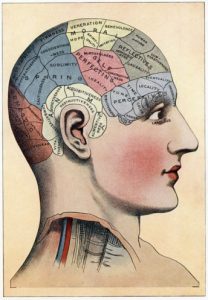 A study in the early 90’s found that children who listen to Mozart have enhanced brain function and memory capabilities–this correlation was aptly coined the “Mozart Effect.” Although the Mozart effect gained widespread popularity and parents around the globe began playing Mozart to their babies and children in hopes of improving their brain function and intelligence, a later review of the Irvine University study revealed that the study was based on a small-scale investigation and that the scientists actually conducted the study on young adult students, not children. In addition, the brain power boosting effects were in no way cumulative or permanent, they only lasted for 15 minutes.
A study in the early 90’s found that children who listen to Mozart have enhanced brain function and memory capabilities–this correlation was aptly coined the “Mozart Effect.” Although the Mozart effect gained widespread popularity and parents around the globe began playing Mozart to their babies and children in hopes of improving their brain function and intelligence, a later review of the Irvine University study revealed that the study was based on a small-scale investigation and that the scientists actually conducted the study on young adult students, not children. In addition, the brain power boosting effects were in no way cumulative or permanent, they only lasted for 15 minutes.
Brain Power and Memory
Although the Mozart study didn’t yield any concrete evidence that listening to music can boost memory, IQ or brain function, there have been countless subsequent studies that have proven that it does. Studies over the past 20 years have found that all types of music produce memory and brain power boosting effects. And the benefits are not limited to children, the also apply to adolescents, adults and the aging population.
The Effect of Music
Advertisement
A large meta-analysis of multiple studies was conducted in 2010 and it found that it’s not so much a specific artist or genre that is responsible for the memory and brain function enhancing effects of music, it is actually personal preference that is responsible. In other words, if you like pop music, than you will experience a greater brain boosting effect listening to Lady Gaga, than you will to Classical music or other genres of music. The exact reason why music enhances brain function has not been definitively determined but scientists speculate that it is the cognitive arousal you receive from listening to music that is responsible. Basically, your brain needs to be stimulated in order to activate certain memory and intelligence centers and music acts as a stimulant that jump starts those centers of your brain.
Music and the Anti-Aging Effect
The latest study to investigate the correlation between music and brain power, examined the effects of playing an instrument on IQ levels. The 18 month long German study was conducted on 73 boys and girls aged 7 to 8. Approximately one-third of the children were given weekly 45 minute music lessons on the instrument of their choice and they were also told to practice regularly at home. According to the research team the study found that there is “a positive transfer effect from musical expertise onto speech and language processing.” In other words, children who are trained on an instrument experience an improvement in verbal memory. “Across one and one-half years, children in the music group showed a greater increase on every measure of verbal memory than the natural science and control groups.” As of yet, no studies have been done to determine if playing an instrument positively effects an adolescent or aging brain.
RELATED READING: 10 Ways to Rejuvenate Your Brain at Any Age!
Another recent brain function/music study conducted at Ohio State University, examined the effects of working out while listening to music. The researchers found that listening to music while exercising increased scores of verbal fluency in cardiac rehabilitation patients. The patients scored more than double on the verbal fluency test after they worked out to music, then they did when they simply exercised without music. “Listening to music may influence cognitive function through different pathways in the brain,” states lead researcher Emery. “The combination of music and exercise may stimulate and increase cognitive arousal while helping to organize cognitive output.”
Although the brain boosting effects of music may not be powerful enough to increase the IQ of adult and aging brains, it seems that it can help to enhance brain function, at least in the interim. Just remember to play something that you enjoy and if you have some free time, consider taking musical instrument lessons!
